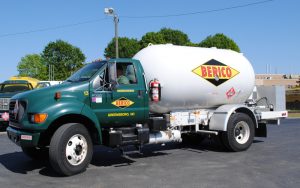How Do I Lower My Fleet Costs?
 Operating a fleet of commercial vehicles is an expensive endeavor, to say the least. It seems that the costs just keep coming, from ongoing fuel purchases to routine maintenance, one-off repairs, and more. For many businesses, the difference between finishing the year in the black or the red comes down to controlling fleet costs effectively.
Operating a fleet of commercial vehicles is an expensive endeavor, to say the least. It seems that the costs just keep coming, from ongoing fuel purchases to routine maintenance, one-off repairs, and more. For many businesses, the difference between finishing the year in the black or the red comes down to controlling fleet costs effectively.
This article will offer some basic tips to help you move in that direction. To work with a fleet fueling service that will always respect your bottom line, contact Berico today. As a leader in the often searched phrase, “diesel fuel delivery near me,” Berico has a proven track record of offering reliable deliveries for excellent prices.
Scheduled Maintenance is Key
This is one of those “spend money to save money” points that you simply can’t afford to skip. Ongoing, scheduled maintenance is critical to the health of a fleet, and to the management of your budget. If you skip maintenance steps in the hopes of saving a bit of money along the way, those choices are sure to come back to bite you later on. Create a detailed maintenance schedule and stick with it so you can minimize the more expensive, urgent repair projects that come up down the line.
Maintain Tire Pressure
If you have a fleet that racks up a lot of miles during the average month, even small things can make a big difference to your costs. One such “small thing” is tire pressure, as having your tires underinflated leads to increased drag and reduced fuel economy. Checking tire pressure can be added as an ongoing maintenance point to help your vehicles get the best possible fuel efficiency.
Get a Fair Price
Don’t assume that fuel prices are going to be the same from one supplier to the next. Yes, the greater market is going to have the most powerful impact on prices, but picking the right supplier can help to control your costs and make sure you are getting a fair deal. Using a proven name in this industry like Berico will put you in a good position to always get the right price on things like diesel, lubricants, and other necessities.
Monitor Driver Performance
The performance of your fleet is only going to take you as far as the drivers who are sitting behind the wheel of each vehicle. With so much modern GPS technology available, you can use one of a number of different programs to monitor driver performance and make improvements, as necessary. Again, it’s about tightening up the little things that will make a big difference. If you can even tweak a few driver habits that were wasting fuel and adding miles, making those changes will have a direct impact on your profitability.
Gradually Upgrade Vehicles
With very few exceptions, newer vehicles are going to be more efficient than their older counterparts. So, if you can gradually turn your fleet over and invest in new vehicles to replace the oldest members of your fleet, fuel and maintenance costs are going to go down as a result. You probably can’t go out and buy all new vehicles immediately, but making this a priority over time is going to put you in a better position moving forward.

